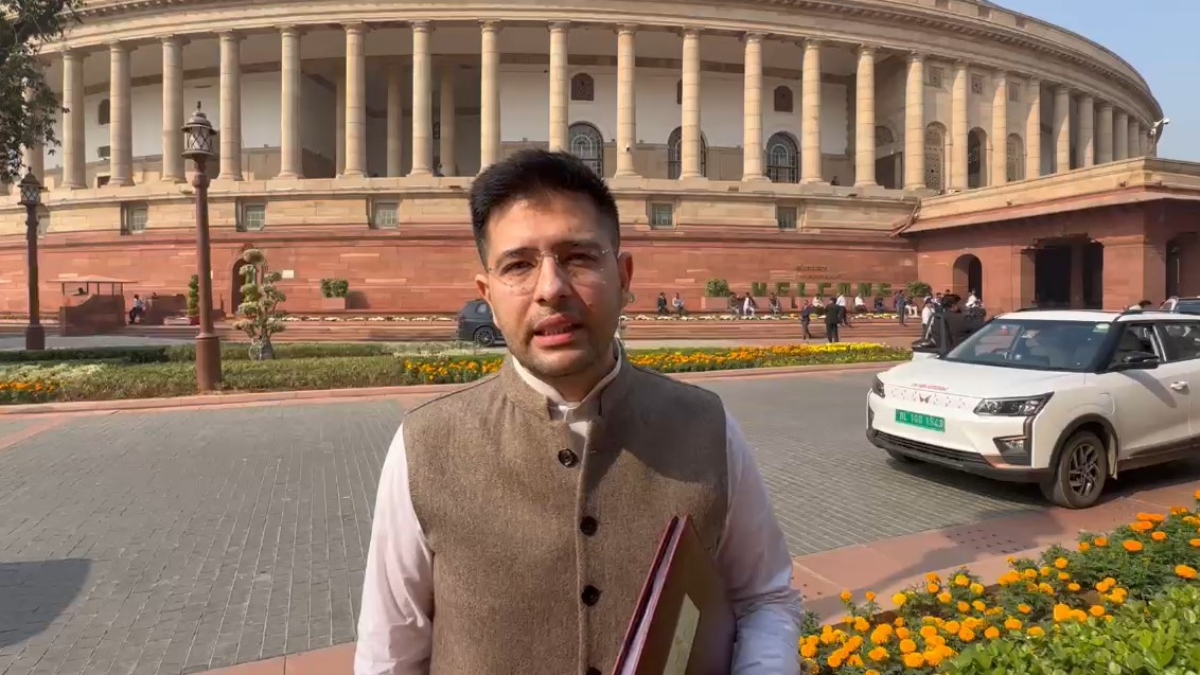 |
|
The arrest of Chinmoy Krishna Das, a Brahmachari of the International Society for Krishna Consciousness (ISKCON), in Bangladesh has ignited a firestorm of controversy, prompting a call for urgent action from the Aam Aadmi Party (AAP) in India. AAP Rajya Sabha MP Raghav Chadha has submitted a notice to suspend business in the Rajya Sabha, demanding an immediate debate on the arrest and the broader issue of alleged escalating violence against Hindus in Bangladesh. Chadha's motion underscores the growing concern within India regarding the safety and well-being of religious minorities in Bangladesh and the freedom of religious expression in the region. The gravity of the situation is highlighted by the fact that Das's arrest, stemming from accusations of sedition for allegedly raising a flag on a designated national flagpole, has been met with widespread outrage and calls for his immediate release. The incident is not merely an isolated case; it is seen as symptomatic of a wider pattern of alleged persecution and repression against the Hindu community in Bangladesh, fueling anxieties about religious freedom and human rights in the country.
The controversy surrounding Das's arrest centers on the perceived injustice of his detention and the allegations of a broader pattern of persecution. Das's accusers claim he violated Bangladeshi law by raising a flag on a designated national flagpole, a charge that has been met with skepticism by many who view it as a pretext for targeting him due to his religious affiliation. The subsequent rejection of his bail application further inflamed tensions, leading to widespread protests and condemnation both within Bangladesh and internationally. The incident has heightened existing concerns regarding the treatment of religious minorities in Bangladesh, prompting renewed calls for international scrutiny and intervention.
The AAP's strong stance reflects a growing unease within India concerning the situation in Bangladesh. The party's leaders, including Manish Sisodia and Saurabh Bharadwaj, have met with representatives of ISKCON to demonstrate their solidarity and express their concern. Sisodia's condemnation of Das's arrest, emphasizing ISKCON's commitment to peace and rejecting the accusations against the organization, is a significant indicator of the political weight this issue carries. Chadha's call for a Rajya Sabha debate not only underscores the AAP's commitment to advocating for religious minorities but also indicates a broader push within India to address concerns about the treatment of Hindus in Bangladesh through diplomatic channels. The Indian government's response to this situation will be closely watched, with many hoping for strong diplomatic action to protect the rights and safety of religious minorities in neighboring Bangladesh.
The implications of this incident extend beyond the immediate case of Chinmoy Krishna Das. It raises fundamental questions about religious freedom, the rule of law, and the responsibility of governments to protect their citizens regardless of religious affiliation. The international community is watching closely, with human rights organizations and religious bodies expressing growing alarm. The debate in the Rajya Sabha, if successful, could represent a significant turning point, potentially leading to increased pressure on the Bangladeshi government and fostering a more robust international response. The outcome will have far-reaching implications for the relationship between India and Bangladesh and the wider issue of religious freedom in South Asia. The case serves as a stark reminder of the importance of upholding human rights and protecting religious minorities, and the need for sustained international efforts to ensure accountability and justice.
Ultimately, the fate of Chinmoy Krishna Das and the broader issue of religious persecution in Bangladesh remain deeply intertwined. The success of Chadha's motion in the Rajya Sabha remains to be seen, yet the significance of this push for a debate underscores the rising concerns and the urgent need for a more decisive and concerted response from both the Indian government and the international community to address the alleged systematic persecution of Hindus in Bangladesh and to ensure the protection of religious freedom for all. The ongoing situation demands sustained attention, highlighting the complex interplay between domestic and international politics, religious freedom, and the pursuit of justice for those affected by persecution.
Source: Winter Session: AAP's Raghav Chadha calls for debate on arrest of ISKCON priest in Bangladesh
